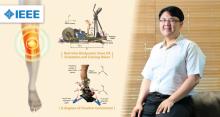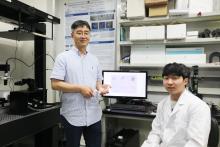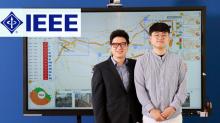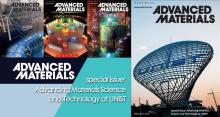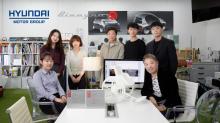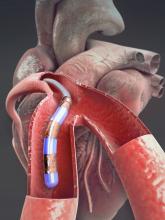Robots
News
03 Sep 2019
DGIST Professor Hongsoo Choi’s team developed a biodegradable micro-robot that performs both drug release and hyperthermia treatment into a desired area. Improved drug treatment and opened a new path of future anti-cancer treatment.
03 Sep 2019
DGIST Professor Sanghoon Lee’s team developed a novel neuromodulation interface that converts friction energy into for electrical neurostimulation energy to treat underactive bladder. Expected to be widely applied for the treatment of neurological disorders.
03 Sep 2019
A recent study, affiliated with South Korea's Ulsan National Institute of Science and Technology (UNIST) has presented an artificial intelligence technology that can predict traffic conditions for the next 5 to 15 minutes at an error rate of less than four kilometers an hour.
31 Aug 2019
Advanced Materials publishes a special issue, highlighting some of the outstanding works of South Korea's Ulsan National Institute of Science and Technology (UNIST).
27 Aug 2019
The School of Design and Human Engineering at South Korea's Ulsan National Institute of Science and Technology (UNIST) has been selected to lead the exterior styling of Hyundai Motor’s autonomous vehicles.
22 Aug 2019
Wearing a flower brooch that blooms before your eyes sounds like magic.
KAIST researchers have made it real with robotic muscles.
25 Jul 2019
A team of students from the Department of Mechanical Engineering of The Hong Kong Polytechnic University (PolyU) won the Gold Award for its ingenious robot design at the ASM Technology Award 2019.
17 Jun 2019
Singapore's week-long celebration of innovation is back! The tech community have their calendars marked for this year's incredible Smart Nation Innovations Week - and so should you!
14 May 2019
The latest innovations in 5G, AI, AR/VR, Startups and Vehicle Tech

10 Apr 2019
Designated as a KELAF and held signboard hanging ceremony as organized by the Ministry of Drug and Food Safety. To lay the foundation for advanced bio research by securing the reliability and ethicality of animal experiments

09 Apr 2019
Innovators Under 35 expands its remit to the top 20 in the region.
05 Apr 2019
The Hong Kong Polytechnic University (PolyU) (PolyU) today organised The 1st International Forum on Marine Robotics for international and local experts to share insights on how to advance marine robotic technology and its applications in Hong Kong and the Greater Bay Area (GBA).
28 Mar 2019
The Council of The Hong Kong Polytechnic University (PolyU) (PolyU) today announced the appointment of Professor Jin-Guang Teng, currently a Vice-President, Dean of Graduate School and Chair Professor of Southern University of Science and Technology, as its new President with effect from 1 July 2019.
05 Mar 2019
An international team has developed an attachable guidewire that can move and steer towards a desired direction inside complicated blood vessels. The technology will contribute to increasing the success rate of heart disease treatment with a shorter cardiovascular disease surgery time and higher accuracy.

02 Feb 2019
Over 500+ inventions and innovations from 20 countries

26 Dec 2018
Do You Know How Robotics Can Bring Massive Improvement in Automation, Productivity and Innovation?
10 Dec 2018
Flexible skin for soft robots, embedded with electrical nanowires, combines conductivity with sensitivity within the same material.

07 Nov 2018
Keynote by IMDA Singapore. Reserve your spot!
- « first
- ‹ previous
- 1
- 2
- 3
- 4
Events
Sorry, no events coming up for this topic.
Researchers
Sorry, no researchers coming up for this topic.
Giants in history
Sorry, no researchers coming up for this topic.


